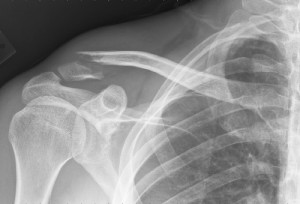Did you know that Vitamin B12 is one of the most important vitamins for bones? Osteoporosis is one of many illnesses triggered by vitamin B12 deficiency. Studies prove that elderly individuals who maintain high levels of vitamin B12 are less likely to suffer from fractured or broken bones than those who neglect to supplement with vitamin B12 shots.
What is the cause of osteoporosis?
Osteoporosis happens with age for millions of Americans- there exist many factors that cause loss of bone mass, brittle bones, and other symptoms of osteoporosis. Low calcium absorption is one cause of broken bones and fractured hips in old age, but other causes include:
- Estrogen deficiency in women
- Testosterone deficiency in men
- Thyroid disorders
- Smoking and alcohol use
- Vitamin deficiency, including calcium, vitamin D and vitamin B12
What is B12 deficiency?
Vitamin B12 deficiency occurs from neglecting to eat a diet rich in sources of vitamin B12, such as meat, fish, poultry, eggs, and milk, but it can occur if your body is unable to extract vitamin B12 from foods that you eat. Such is the case for millions of individuals, either because
- (a) they lack “intrinsic factor,” a protein required for digesting vitamin B12 naturally from foods
- (b) because of drug interactions, such as metformin for diabetes, or
- (c) because of post-gastrectomy complications that resulted in pernicious anemia.
(Read Vitamin B12 deficiency after Bariatric Surgery Weight Loss)
What are the symptoms of vitamin B12 deficiency?
Unless treated, B12 deficiency causes red blood cell depletion, neurological damage, dementia, osteoporosis, malnourishment, and increased risk for heart attack, stroke.
Symptoms of vitamin B12 deficiency are:
 Fatigue, listlessness
Fatigue, listlessness- Depression
- Memory loss
- Anxiety
- Psychosis
- Numbness and tingling sensations in hands and feet
- Muscular feebleness
- Frequent stumbling
- Altered taste perception
- Red, swollen tongue
- Unusually pale complexion
What do studies say about the benefits of vitamin B12?
In a study conducted by Tufts University that focused on low-plasma vitamin B12 and bone mineral density (BMD), researchers found that men who had the lowest levels of B12 in their blood also had the lowest bone mineral density, particularly in their hipbones. Similarly, women who suffered vitamin B12 deficiency exhibited severely low BMD in their spine.
They concluded that vitamin B12 deficiency is a significant risk factor for osteoporosis, which explains why the loss of bone mass occurs so frequently among the elderly:
As you age, your body produces fewer stomach acids needed for digesting vitamins and minerals.
As a result, many senior citizens develop vitamin deficiencies, including B12 deficiency. Since they are unable to absorb B12 through the digestive system, they must therefore deposit it directly into the bloodstream.
Another study by the University of Michigan recognized severe osteoporosis as correlating strongly with pernicious anemia-vitamin B12 deficiency.
What are the best vitamins for osteoporosis?
It is crucial to eat a diet rich in all essential vitamins and minerals, in addition to taking regular vitamin supplements. The best vitamins for bones are vitamin D and vitamin B12.
If you suspect you have vitamin B12 deficiency, then ask your doctor for a blood test. If diagnosed, then you will require routine vitamin B12 supplements until your B12 levels are back to normal.
Read more about preventing vitamin B12 deficiency:
Absorbing Vitamin B12, a Metabolic Gastrointestinal Journey
Nine Healthiest Canned Foods: Many Contain Vitamin B12
Sources:
Fight Osteoporosis: Bone Up On B12
Low plasma vitamin B12 is associated with lower BMD: the Framingham Osteoporosis Study- PubMed NCBI
Post-Gastrectomy Syndrome Overview- Cleveland Clinic
What Causes Osteoporosis? And Why?
Image credits, from top:




